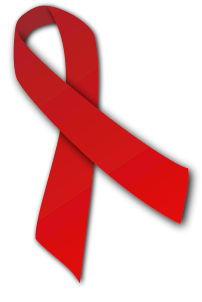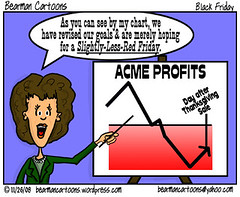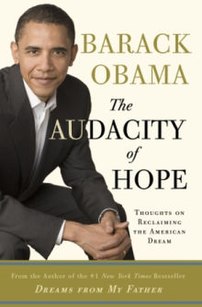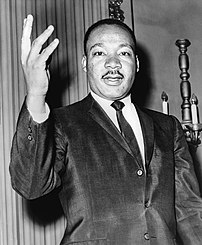
To the right is a picture of the Stalingrad Madonna, which features Madonna and child and the words: “Licht, Leben, Liebe” – “light, life, love.” Lieutenant Kurt Reuber, a German staff physician and Protestant pastor, drew the Stalingrad Madonna in December 1942 in charcoal on the back of a military map. He did so during the Battle of Stalingrad, perhaps the longest and bloodiest battle of the Second World War that cost the lives of hundreds of thousands of soldiers and civilians.
In a letter that accompanied the picture, Reuber wrote the following:
The picture looks like this: the mother's head and the child's lean toward each other, and a large cloak enfolds them both. It is intended to symbolize 'security' and 'mother love.’ I remembered the words of St. John: light, life, and love. What more can I add? I wanted to suggest these three things in the homely and common vision of a mother with her child and the security that they represent. When we opened the 'Christmas Door', as we used to do on other Christmases (only now it was the wooden door of our dug-out), my comrades stood spellbound and reverent, silent before the picture that hung on the clay wall. A lamp was burning on a board stuck into the clay beneath the picture. Our celebrations in the shelter were dominated by this picture, and it was with full hearts that my comrades read the words: light, life, and love."
In the midst of unspeakable horror, countless deaths, and suffering beyond anything that I can imagine, the Christ Child appeared to these German soldiers, offering them light, life, and love in the midst of darkness, death, and hatred. So to, the Christ Child appears to you and me at Christmas in the midst of whatever consumes us, whatever causes us pain, and whatever robs us of the joy and peace that God offers to us.
What sort of God is it that we meet at the manger? The image is a peaceful one: of well-behaved animals, of warmth and comfort, of shepherds guided by a star, of Mary and Joseph filled with hope and joy.
However, as peaceful as our composite sketch of the nativity might be, the story is not as neat and tidy as we might like. Mary was poor. In all likelihood, she was socially ostracized for becoming pregnant when she was not yet married. If you have ever worked on a farm you know that the manger, filled with barnyard animals must have been very smelly and dirty. The shepherds were at the bottom of the social ladder. Despite our attempts to sanitize and romanticize it, there is nothing powerful or prestigious or even clean about the nativity scene, nothing that would hint at the world-changing story that unfolded that night.
These details are important as we seek to answer the question: What sort of God is it that we meet at the manger? One answer came to me this past Sunday as I sat in the rector's forum at the church that I now attend. We were talking about Joseph and Mary. Someone said that God must have known that they would respond positively to God's call. I responded by disagreeing, saying that perhaps God did not know, that instead God chose to take a risk, to put God's plan in the hands of two unlikely people - not knowing how they would respond or how badly they might mess it up. That is the God that we worship and serve - a God who takes risks by calling us to do God's work in our world. Sometimes that risk pays off. Sometimes we mess it up. But God's grace is sufficient that even when we make a true mess, God continues to call us, to trust us, to take a risk on us. That is what happened on that Christmas so many years ago. God took a risk. God chose to enter human history in a unique and wonderful way by taking on human flesh. And that is precisely what God continues to do in our lives today!
At Christmas, we celebrate the mystery of incarnation, of God becoming one of us through the child Jesus, of God living among us, of God ultimately suffering and dying as one of us. We celebrate life, light, and love, knowing that the Christ comes into our world to penetrate the darkness, to bring life where there is death, and to love every one of us. That is worth celebrating!

![Reblog this post [with Zemanta]](http://img.zemanta.com/reblog_e.png?x-id=bf93b9ba-bf93-431c-b475-47d70142a6a2)

![Reblog this post [with Zemanta]](http://img.zemanta.com/reblog_e.png?x-id=003a86dd-1a47-4cdd-97d3-6b8371757143)

![Reblog this post [with Zemanta]](http://img.zemanta.com/reblog_e.png?x-id=dbaabc05-20fc-40ba-8298-c527a1f53917)

![Reblog this post [with Zemanta]](http://img.zemanta.com/reblog_e.png?x-id=333f4468-c58b-4292-9cb6-7d302f310dc9)

![Reblog this post [with Zemanta]](http://img.zemanta.com/reblog_e.png?x-id=70314cf9-df33-4f6b-8ea2-be55b39b8d59)
![Reblog this post [with Zemanta]](http://img.zemanta.com/reblog_e.png?x-id=71fdff1b-5e7c-4c62-9ec5-12722ad1903b)

![Reblog this post [with Zemanta]](http://img.zemanta.com/reblog_e.png?x-id=b8462dfa-d787-4663-954b-c0c71dcde2ff)

![Reblog this post [with Zemanta]](http://img.zemanta.com/reblog_e.png?x-id=68ceb719-2279-4926-bab4-881245723cee)

![Reblog this post [with Zemanta]](http://img.zemanta.com/reblog_e.png?x-id=b0a8f4dc-3ffa-4c42-92f5-2df55b04509a)

![Reblog this post [with Zemanta]](http://img.zemanta.com/reblog_e.png?x-id=274a9a1e-698a-43e4-9dd8-8b430b031c14)

![Reblog this post [with Zemanta]](http://img.zemanta.com/reblog_e.png?x-id=b3fd1ff7-58a9-449e-ac53-96de03128a4a)
![Reblog this post [with Zemanta]](http://img.zemanta.com/reblog_e.png?x-id=52c0ef5c-c5d0-4d6c-bc03-939e732651e2)
![Reblog this post [with Zemanta]](http://img.zemanta.com/reblog_e.png?x-id=78cb5493-77d4-41ed-9438-117dd27dd8ea)

![Reblog this post [with Zemanta]](http://img.zemanta.com/reblog_e.png?x-id=792571e3-4134-45ce-bc08-39ca85e8d767)

![Reblog this post [with Zemanta]](http://img.zemanta.com/reblog_e.png?x-id=44bbf2ab-d205-473e-a2d2-036a089b6138)

![Reblog this post [with Zemanta]](http://img.zemanta.com/reblog_e.png?x-id=ab9bfdaf-96b6-44c7-b028-a08127c47f7c)

![Reblog this post [with Zemanta]](http://img.zemanta.com/reblog_e.png?x-id=e3cda4bf-63e0-443d-855d-d534c6a664c5)
![Reblog this post [with Zemanta]](http://img.zemanta.com/reblog_e.png?x-id=c420969d-4cc0-4341-83d3-4cea074f2d3d)

![Reblog this post [with Zemanta]](http://img.zemanta.com/reblog_e.png?x-id=ed681645-ef68-4457-b8c9-74e8c0b65e63)

![Reblog this post [with Zemanta]](http://img.zemanta.com/reblog_e.png?x-id=f8b6853c-b8de-46d2-9be3-b632daec1b49)
![Reblog this post [with Zemanta]](http://img.zemanta.com/reblog_e.png?x-id=c70f489b-ed69-4c29-9879-41c7677ec6c2)

![Reblog this post [with Zemanta]](http://img.zemanta.com/reblog_e.png?x-id=ac4be730-5ab7-40e4-a274-21e4b4f4970b)

![Reblog this post [with Zemanta]](http://img.zemanta.com/reblog_e.png?x-id=0ca1f3e0-aead-4bd3-b68e-fd63b2a0e64e)



